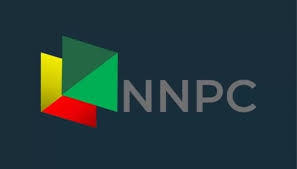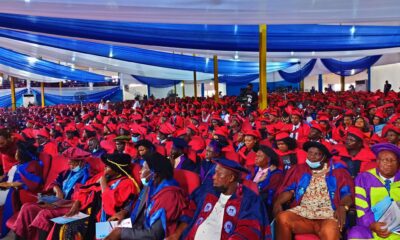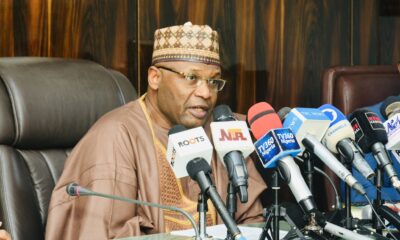Oil & Energy
Rivers Community Tasks NAOC On Pollution
Obrikom Community in
Ogba/Egbema/Ndoni Local Government of Rivers State has drawn the attention of Nigeria Agip Oil Company (NAOC) Oil company on the dangers the community faces as a result of its operation in the area.
Speaking to The Tide recently a retiree of NAOC who is also an indigene of Obrikom, Engr. Anthony Ogbu, expressed dissatisfaction with the level of pollution caused by the company to the community.
He maintained that the operation of the company in the area affects the roof of houses as they no longer last as expected.
However, he expressed gratitude to the company for the provision of portable water, constant electricity and the Precautionary measures taken now to minimise gas flaring.
The Community Development Committee (CDC) chairman, Mr. Paul Isiodu, appealed to the company to sign the memorandum of understanding between the community and the company.
He urged the company to maintain cordial relationship with the community by providing skills acquisition programme for the youths, scholarship and employments.
He added that his major challenge is to ensure that the youth of Obrikom community are empowered to be self reliant under his administration, stressing that the company should try its best because Obrikom is doing their best.
Also, he said the community should improve on the level of employment, especially the unemployed graduates.
The immediate past CDC chairman, Mr. Benson Osoh, congratulated Agip company for the provisions of social amenities for the Obrikom community.
He reiterated that the electricity and good roads enjoyed by the community are provided by Agip.
The former CDC chairman said Obrikom community has always been neglected by the government except for the primary school, stressing that Obrikom is the goose that laid the Golden eggs for the state yet they are forgotten and draw the attention of both the local, state and federal to the plight of the community.
Oil & Energy
FG, MEMAN Chart Ways To Safe Petroleum Products Delivery

The Federal Government and key Petroleum Products marketers have proposed new measures to help curb rising cases of road accidents involving petrol tankers.
This followed recent incidents of road accidents resulting in cremation of hundreds of lives and causing extensive damage to properties.
Speaking at the Discourse organised by Mejor Energy Marketers Association of Nigeria (MEMAN) in Lagos, Thursday, with the theme “Improving Safe Transportation of Petroleum Products”, the Minister of State for Petroleum Resources (Oil), Heineken Lokpobiri, noted with dismay the number of casualties the country recorded recently due to tanker accidents.
Lokpobiri stressed the need for an enhanced training for tanker drivers, installation of detection leak devices as well as other safety systems that can assist drivers.
He called on Marketers and Federal Road Safety Commission (FRSC) to strengthen collaboration with stakeholders, especially in the training of tanker drivers.
On his part, the Minister of State for Petroleum Resources (Gas), Ekperikpo Ekpo, reaffirmed government’s commitment to providing enabling environment to ensure safety of petroleum products transportation.
Ekpo, who was represented by Engr. Abel, said consideration should be given to more safety means of transporting products like the pipelines and railway line.
He stressed the need for better training for drivers and implementation of safety regulations within the industry.
Earlier, Chairman, MEMAN, Huub Stokman, said the Association has elaborate training manual for members truck drivers.
Stokman insisted that more training programmes and consistent adherence to safety measures would help to curb road accidents involving tanker drivers.
Also speaking, the National President, Nigerian Association of Raod Transport Owners (NARTO), Yusuf Lawal Othman, called for support.
Oil & Energy
Benue To Pioneer Gas Production From Coal – NGEP

The Chairman, National Gas Expansion Programme (NGEP), Prof. Mohammed Ibrahim, has said that the production of coal bed methane, an unconventional form of natural gas extracted from coal, is set to begin in Benue State.
Prof. Ibrahim staed this while addressing newsmen at the end of a joint meeting of the National and State gas expansion committees with Benue State Governor, Hyacinth Alia.
He said the Federal Government is committed to expanding gas availability in Nigeria for domestic use and mobility.
Ibrahim added that extracting gas from unconventional coal sources rather than traditional hydrocarbon reserves is a way to boost gas availability.
“Essentially there are four areas of implementation that the committee has identified. One is to pioneer the production of gas from what you call coal bed methane, which means that Benue is going to pioneer in the country the production of gas not from conventional hydrocarbon, but from non-conventional coal just so that the nation will have an alternative source to gas availability”, he said.
Also speaking, the Chairman, Benue State Gas Expansion Programme, Dr. Emmanuel Chenge, said the gas expansion initiative would contribute to the economic transformation of Benue State.
“The good news is that Benue is set to join the league of gas-producing states and if we are conversant with what being a member of the gas-producing state is, it shows that Benue State will start getting derivatives from that sector of the economy”, Dr Chenge stated.
The National Gas Expansion Programme (NGEP) was established to boost the exploration and utilisation of gas in Nigeria and make Nigeria a gas-based industrial nation by increasing the use of gas for transportation, cooking, and industrialization.
Oil & Energy
NNPC Debunks Explosion Claim In Warri Refinery

The Nigeria National Petroleum Company Limited (NNPCL) has said there was no explosion at the newly refurbished Warri Refining and Petrochemical Company (WRPC).
NNPCL’s Chief Corporate Communications Officer, Olufemi Soneye, made this known in a statement issued on Friday night.
Soneye said reports claiming that there was an explosion at the Warri refinery were false and should be ignored and disregarded by the public.
According to him, the refinery was undergoing routine maintenance.
His statement read, “NNPC Ltd. wishes to clarify that there was no explosion at the Warri Refining and Petrochemical Company (WRPC). Any reports suggesting otherwise are completely false.
“On January 25, 2025, operations at WRPC Area 1 were intentionally curtailed to carry out necessary intervention works on select equipment, including field instruments that were impacting sustainable and steady operations.
“These intervention works are essential to ensure the production of on-specification finished and intermediate products, particularly Automotive Gas Oil (AGO) and Kerosene (Kero).
“The routine maintenance is progressing as planned, and Area 1 will be back in operation within the next few days.
“Despite ongoing interventions, over the past 11 days, AGO loading has been maintained at an average of eight trucks per day, with a sufficient supply available to sustain ongoing truck load-out operations”.
Soneye added that the NNPCL was committed to ensuring an uninterrupted supply of petroleum products from the refinery.
He said the company “appreciates the patience and cooperation of all stakeholders as it completes these essential maintenance activities”.
-
Niger Delta3 days ago
Ogoja State Agitation Gains Momentum In Cross River
-

 Editorial3 days ago
Editorial3 days agoUNIZIK’s Expulsion Of Precious Mbakwe
-
Nation3 days ago
NNPC Shipping, Partners Unveil New Joint Venture
-
News3 days ago
Recognise Abiola As Former President, Orji Kalu Tells Tinubu
-
Business3 days ago
Shippers’ Council Commends Customs Over AEO Initiative
-
Niger Delta3 days ago
Okpebholo Inaugurates New Buses For Revived Edoline, Security Agencies
-

 Politics3 days ago
Politics3 days agoPDP, Udeh-Okoye Seek To Join Anyanwu’s Suit Against INEC, Damagum
-
Nation3 days ago
GDP Growth Reflects Economic Recovery, Entrepreneurs’ Resilience-Expert

